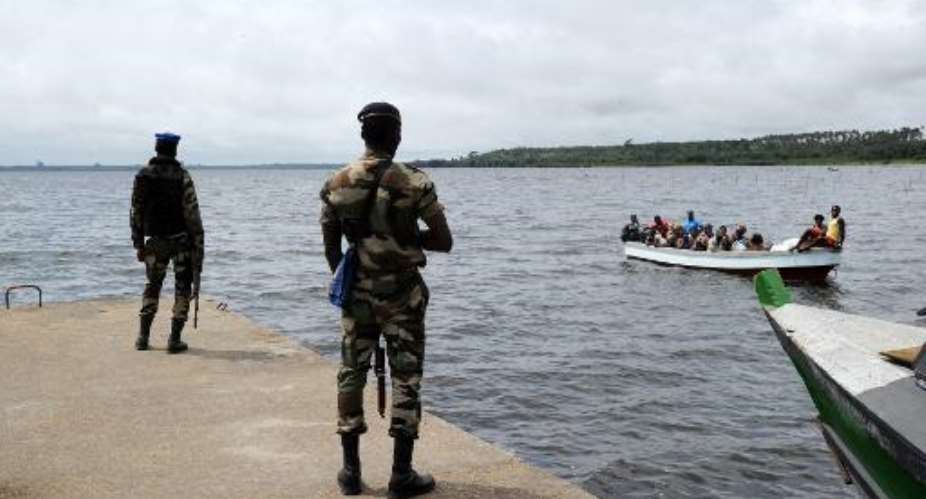Accra (AFP) - Ghana and Ivory Coast are heading to a United Nations tribunal to resolve a dispute over the maritime boundary separating the two oil-producing nations, Ghana's attorney general said on Thursday.
The maritime border between the two countries cuts through offshore oil fields that both nations are eager to exploit, but there are claims the boundary has not been properly demarcated.
Attorney General Marietta Brew Appiah-Oppong told AFP that Ghana decided to file a suit against its neighbour under the UN Convention on the Law of the Sea after months of talks failed to reach an agreement.
"The friendly thing to do is ask an impartial arbiter to determine the issue on your behalf," Appiah-Oppong said of Accra's decision.
Both Ghana and Ivory Coast denied that the lawsuit signalled a change in relations between the two countries, which are west Africa's second- and third-largest economies respectively.
"The two countries are talking and will continue to talk," Ivory Coast government spokesman Bruno Kone said in Abidjan. "We are neighbours and are duty-bound to get along."
Ghana is a major producer of gold and cocoa and began commercial oil production in 2010 from the Jubilee oil field along its western border, which produces 100,000 barrels per day.
Ivory Coast, which is the world's largest producer of cocoa, is looking to boost its existing offshore oil production as well as to encourage a revival of its mining and agriculture sectors after a decade of conflict.





 Akufo-Addo spotted ordering chiefs to stand for his handshake
Akufo-Addo spotted ordering chiefs to stand for his handshake
 Akufo-Addo ‘disrespects’ every chief in Ghana except Okyenhene — NDC Communicato...
Akufo-Addo ‘disrespects’ every chief in Ghana except Okyenhene — NDC Communicato...
 Supreme Court clears way for dual citizens to hold key public positions
Supreme Court clears way for dual citizens to hold key public positions
 Be transparent, don’t suppress the truth – Prof. Opoku-Agyemang to Jean Mensa
Be transparent, don’t suppress the truth – Prof. Opoku-Agyemang to Jean Mensa
 ‘I won’t tell the world I was only a driver’s mate during challenges’ – Prof Jan...
‘I won’t tell the world I was only a driver’s mate during challenges’ – Prof Jan...
 We’ll prosecute corrupt officials of Akufo-Addo’s govt – Prof Jane Naana
We’ll prosecute corrupt officials of Akufo-Addo’s govt – Prof Jane Naana
 [Full text] Acceptance speech by Prof Jane Naana Opoku-Agyemang as 2024 NDC Runn...
[Full text] Acceptance speech by Prof Jane Naana Opoku-Agyemang as 2024 NDC Runn...
 Election 2024: Don’t be complacent, we haven’t won yet – Asiedu Nketia cautions ...
Election 2024: Don’t be complacent, we haven’t won yet – Asiedu Nketia cautions ...
 Election 2024: Stop fighting over positions in Mahama’s next govt – Asiedu Nketi...
Election 2024: Stop fighting over positions in Mahama’s next govt – Asiedu Nketi...
 Prof Jane Naana Opoku-Agyemang will restore dignity of vice presidency – Fifi Kw...
Prof Jane Naana Opoku-Agyemang will restore dignity of vice presidency – Fifi Kw...
